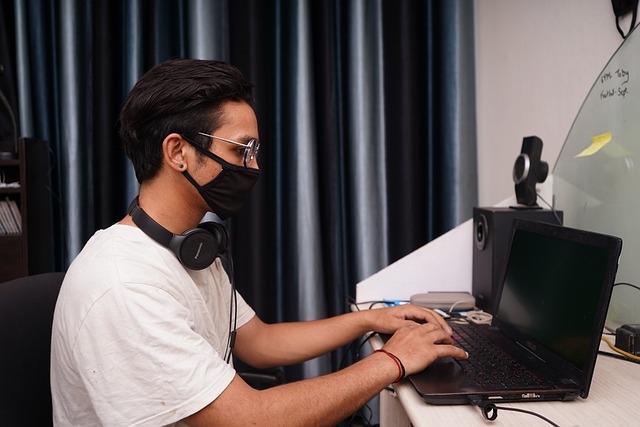When asked about the government’s position on remote working in the long-term, UK chancellor Rishi Sunak recently said that young people in particular would benefit from physically being in the office. “It was really beneficial to me,” he said in the interview with LinkedIn News, “when I was starting out in my career.” Referring to mentors he met then, to whom he still talks now, he said he doubted he would have met them had he done his first internship over chat and Zoom. This was widely reported as a warning that remote working may hurt nascent careers.
Young people, as Sunak rightly points out, have been the hardest hit by the pandemic, with 88% of job losses affecting employees under 35 years old. Their experiences of remote working have borne important differences to workers older than them too.
Since July 2020, we have been collecting survey and case-study data from UK-based individuals, law firms and local authorities, to gauge the impact of lockdown on white-collar jobs. These represent one in seven of all UK jobs. In the first stage of our research in late 2020, our analysis was based on 1,085 survey responses and 38 qualitative interviews.
We have found that lockdown has, in many ways, built more mature workforces. It has challenged the logic of why workplaces are organised in particular ways and accelerated conversations about how to improve them that could otherwise have taken decades. Businesses need to take heed of these lessons - and listen to their employees, young and old, alike - if their COVID-recovery plans are to be successful.
Lockdown experience
Our research has found that during lockdown, young people in particular missed workplace connections. They have keenly felt the absence of friendships and networks, as well as the mentorships and training. Many are keen to get back to offices, particularly those who moved to cities for jobs away from friends and families, or those who have not had suitable home working spaces.
They have naturally been concerned, too, about how extended working from home might damage their careers in comparison to older colleagues who are more embedded into workforces.
Equally, though, many young people have thrived in more autonomous working conditions. And arguably, their youth has better equipped them to adapt to the digital communication needed to make a success out of working from home.
This is not just an issue about whether people are based in or out of offices. One of our key findings is that, as you might expect, people’s management experiences amid lockdown-induced working from home have been very mixed.
Some managers have risen impressively to the challenge, learning quickly how to manage complicated workforces in nuanced ways and foster productivity. They have enabled parents to work more flexible hours and developed real-time learning experiences for trainees.
Other managers, meanwhile, have overlooked the extra support that employees needed amid the complicated circumstances of lockdown.
Organisational developments
We cannot really talk about what is best for young people’s careers without considering how they are managed. And we cannot plan for young people’s return to the office without thinking about who needs to be in offices at the same time as them.
There is now overwhelming support from both employees and employers for a hybrid model which plays to the strengths of both home and workplace-based spaces of work. The Institute of Directors’ recent survey found that over 60% of its members anticipated moving to hybrid forms of working.
On equity grounds, there is a strong argument for giving young people priority access to office spaces where they are requesting this. The return to offices is likely to be most successful where managers listen to employees and respond accordingly, interweaving individual, team and business needs.
Our research has gathered evidence on huge gains that have been made in terms of managers trusting their teams working from home. Organisations have seen hard evidence that employees have managed their time well and remained productive. In a worker wellbeing survey we conducted late in 2020 nine out of ten respondents reported feeling that they got at least as much, if not more, done at home as in the office.
The trust invested in employees works both ways, providing a shift in the employment contract. It will be essential that choice is not lost in decisions about staffing location. There is little to be gained from managers returning to a more directive approach when being flexible has served organisations so well during lockdown.
One of our primary insights has been just how valued learning is at the start of careers in terms of building professional confidence and competence. As workforces adapt to more hybrid organisational structures - part-remote, part-in-office - we have a huge opportunity to build this kind of learning into new patterns of working.
Of course businesses will always want to make themselves stand out. Goldman Sachs, for example, has been keen to position itself as an office-based company. As a former analyst at the investment bank, it makes sense that Sunak would align himself with this approach.
Conversely, digital companies like Twitter and Google have been vocal in establishing themselves as remote-working proponents. As ever, traditional and innovative styles of working will coexist in the future. But broadly speaking, in a competitive market for the most talented staff, employers are increasingly recognising that one size no longer fits all.
If the UK government is serious about not harming young people’s labour-market prospects, now is the time to invest in measures to counter the career-scarring potential of the pandemic. Meaningful training for those at the start of careers along with policy that ensures more secure employment is key.



 The ghost of Robodebt – Federal Court rules billions of dollars in welfare debts must be recalculated
The ghost of Robodebt – Federal Court rules billions of dollars in welfare debts must be recalculated  Britain has almost 1 million young people not in work or education – here’s what evidence shows can change that
Britain has almost 1 million young people not in work or education – here’s what evidence shows can change that  Stuck in a creativity slump at work? Here are some surprising ways to get your spark back
Stuck in a creativity slump at work? Here are some surprising ways to get your spark back  Columbia Student Mahmoud Khalil Fights Arrest as Deportation Case Moves to New Jersey
Columbia Student Mahmoud Khalil Fights Arrest as Deportation Case Moves to New Jersey  The Beauty Beneath the Expressway: A Journey from Self to Service
The Beauty Beneath the Expressway: A Journey from Self to Service  Every generation thinks they had it the toughest, but for Gen Z, they’re probably right
Every generation thinks they had it the toughest, but for Gen Z, they’re probably right  AI is driving down the price of knowledge – universities have to rethink what they offer
AI is driving down the price of knowledge – universities have to rethink what they offer  Why have so few atrocities ever been recognised as genocide?
Why have so few atrocities ever been recognised as genocide?  6 simple questions to tell if a ‘finfluencer’ is more flash than cash
6 simple questions to tell if a ‘finfluencer’ is more flash than cash  The American mass exodus to Canada amid Trump 2.0 has yet to materialize
The American mass exodus to Canada amid Trump 2.0 has yet to materialize  Canada’s local food system faces major roadblocks without urgent policy changes
Canada’s local food system faces major roadblocks without urgent policy changes  Office design isn’t keeping up with post-COVID work styles - here’s what workers really want
Office design isn’t keeping up with post-COVID work styles - here’s what workers really want  Debate over H-1B visas shines spotlight on US tech worker shortages
Debate over H-1B visas shines spotlight on US tech worker shortages 
























